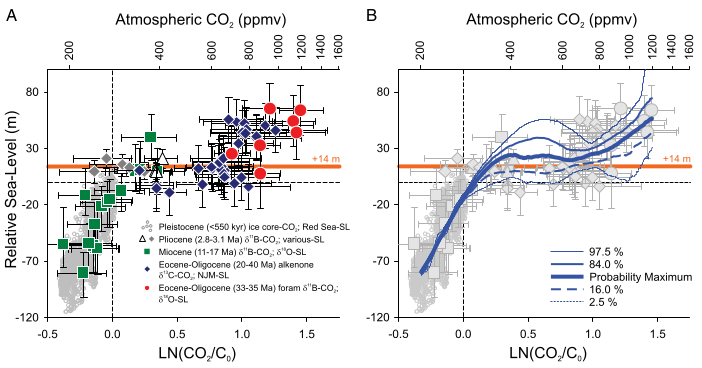I should probably say given my experience of understanding when there's a so called bogus consensus is pretty open minded because I've seen the establishment mess things up, even the so called good guys, in ways that I really did know a thing or two. But in the process (like having to wade through alternative medicine) you get a pretty good eye for who the quacks are and who their victims of quackery are.
And I'm gonna say Dale you might be, as you've evolved in how you discuss the topic here, are either the best goddamn liar I've seen on CFC or you genuinely believe you're onto something that isn't just anti-liberal reactionism (it usually is with these things).
However my BS tolerance is now so far and above my open mindedness to non military non corporate research scientist culprit conspiracy theories.
So I can't follow your links in good faith. But I can say it's interesting.
Dale has a tendency to quote studies that are on the low-impact side of the global warming research and to wade into name-calling and the like when the argument gets heated, but he does have a good understanding of climatology. He's one of the few posters, and probably the only one from the "it's not a big deal" camp, that I tend to learn from when I read climate change debates.
One of the problems the climate change debate has is that the probability distribution for possible human impacts has a long right tail. This is a problem for how people tend to debate this, because debate and skewed distributions don't seem to go along together.
The median outcome, as far as I understand it, seems to be that global CO2 concentrations reach something like ~560 ppm (~2x preindustrial), causing warming of something on the order of 2-3.5 C from present, not all of which even happens by 2100 (probably 1-2.5 C by then). Sea level rise is generally less than 1 m before 2100 under the IPCC's scenarios and rarely climbs beyond ~3 m even in the very long run.
A 2 C temperature change and 1 m sea level rise by 2100 would be very problematic, to say the least. But human civilization would survive, despite substantial costs (especially in areas near sea level, or in geographic areas that dry out or flood under the new climate regime). If anything, I expect humanity's ability to emit GHGs will be limited by the net energy we obtain from fossil fuels, petering out slowly over the course of the next 100 years despite improvements in technology (such as in extraction of tar sands, tight oil, and the like). We can only deplete nonrenewable resources so far before it becomes uneconomical to extract them.
There is, however, a large amount of uncertainty. It is far from obvious that ratcheting up the CO2 level to ~560 ppm will not trigger poorly-understood nonlinear effects such as saturation of carbon sinks, rapid ice sheet melt, ice-albedo feedback beyond what we expect, permafrost CO2 and CH4 release, and some amount of CH4 release from methane clathrates. These could amplify human CO2 emissions beyond what the IPCC expects based on the models we have constructed so far. There seems to be some sort of skew in the probability distribution of impact on humans (however you measure that) toward bad outcomes, but at the moment it does not appear the worst outcomes are probable.
So it depends on how you look at it. I think everybody is in agreement that continuing to burn fossil fuels indefinitely is unsustainable no matter the climate effects, and whatever climate effects do happen will probably make the outcome even worse. Ultimately, we will either be using less energy in the future or figure out how to get some combination of solar/wind/hydro/geothermal/Gen IV nuclear/etc to power industrial society. I doubt it will be an easy transition.
Not sure if it's been posted in this thread, but the IPCC's latest report (AR5) on the science as it's understood now is
here. It's well over 1000 pages long in total, but it's divided into readable chapters and it is worth a skim.




 nearly no one cares about anything. 30,000 kids die per day because of poverty? Yawn.) BUT
nearly no one cares about anything. 30,000 kids die per day because of poverty? Yawn.) BUT



